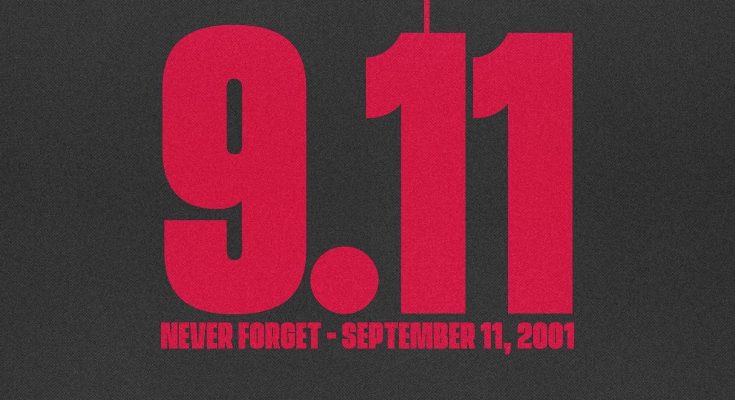Never forget. Those two words carry a weight that transcends generations, reminding us of a day that altered the course of history forever. September 11th, 2001, remains etched in the collective memory of not only Americans but also countless people around the world who watched in shock, grief, and disbelief as the events unfolded. On that crisp Tuesday morning, life seemed normal, even ordinary, as millions of people went about their daily routines. But within hours, the world was shaken to its core, forever marked by the tragic loss of nearly 3,000 lives and the countless others impacted by the ripple effects of the deadliest terrorist attack on American soil. Today, when we say “Never Forget,” we honor the victims, we reflect on the sacrifices of heroes, and we remember the resilience of a nation that refused to be broken.
As the morning began on September 11th, few could have predicted that history was about to be rewritten in unimaginable ways. At 8:46 a.m., American Airlines Flight 11 crashed into the North Tower of the World Trade Center in New York City. Initially, many thought it was some sort of terrible accident, a tragic mistake by a pilot or a mechanical failure. Yet, only minutes later, at 9:03 a.m., United Airlines Flight 175 struck the South Tower, erasing any notion of coincidence. America was under attack, and the sense of vulnerability that swept across the country was unlike anything felt before. At 9:37 a.m., the Pentagon was hit by American Airlines Flight 77, confirming the scope of the assault. And at 10:03 a.m., United Airlines Flight 93, hijacked and headed toward another target in Washington, D.C., crashed into a field in Shanksville, Pennsylvania, thanks to the bravery of passengers who fought back, sacrificing their own lives to prevent further devastation.
Nearly 3,000 people lost their lives that day, including office workers, airline passengers, first responders, and countless others who were simply in the wrong place at the wrong time. The Twin Towers collapsed within hours, sending plumes of dust and debris through Manhattan, covering survivors, first responders, and entire city blocks in a gray cloud of destruction. Firefighters, police officers, and paramedics rushed into the chaos, risking and often giving their lives to save others. The heroism displayed on that day remains one of the defining elements of 9/11. Hundreds of first responders perished as they climbed stairwells and carried injured civilians out of the buildings, embodying courage in the face of horror. Their sacrifice remains a testament to the strength of the human spirit in times of crisis.
Yet, September 11th was not just about what happened in New York City or Washington, D.C. It was a tragedy that touched every corner of America and extended across the globe. Families in small towns and big cities alike lost loved ones. Children grew up without parents, spouses were widowed, parents lost sons and daughters. The pain and grief spread far beyond the sites of destruction. For weeks, images of missing person posters lined the streets of New York, families holding onto hope that their loved ones might still be found amidst the rubble. The heartbreak was matched only by the overwhelming unity that followed. Strangers comforted one another, communities came together, and patriotism surged as Americans clung to the belief that they would not be defeated by hate.
The phrase “Never Forget” became more than a slogan; it became a pledge. It is a promise to honor the memory of those lost, to support the families and survivors who continue to carry the scars, and to recognize the bravery of those who stepped up in unimaginable circumstances. It is also a promise to reflect on the fragility of life and the resilience of the human spirit. Every anniversary brings waves of emotions—grief, anger, sorrow, but also pride and strength. Memorial ceremonies across the nation, from Ground Zero in New York to the Pentagon and the Flight 93 National Memorial in Pennsylvania, stand as physical reminders of what was lost but also what was preserved: courage, unity, and hope.
For the younger generations who were too young to remember or who were not even born yet, “Never Forget” is also an educational call. It is a reminder that history must be preserved, that the stories of victims and heroes must be told again and again. Teachers, parents, and survivors share their experiences so that the lessons of that day are not lost with time. It is important that future generations understand not only the horror of 9/11 but also the way in which communities responded with love, support, and solidarity. The attacks were meant to sow division, fear, and despair, but what followed was a resurgence of resilience. The United States and its allies came together to stand against terrorism, while ordinary citizens looked for ways to help, whether through donations, blood drives, or simply by offering compassion to those who were grieving.
The impact of 9/11 extended far beyond that day. It reshaped national security, led to military interventions overseas, and changed the way Americans traveled, worked, and lived. Airport security became more rigorous, intelligence networks expanded, and a heightened awareness of global threats became a part of everyday life. Families of victims fought for justice, survivors endured long-term health complications, and the nation grappled with the balance between security and freedom. But through all of these challenges, the commitment to “Never Forget” served as a compass, ensuring that the sacrifices of that day would not fade into obscurity.
On each anniversary, moments of silence are observed at the exact times when the planes struck and the towers fell. Bells toll, names are read aloud, and tears are shed as the memories of fathers, mothers, children, friends, and colleagues are kept alive. These tributes matter because they remind us that behind every statistic is a story, a face, a life with dreams and loved ones left behind. It is a reminder that every single person lost on 9/11 mattered deeply to someone, and their absence continues to be felt decades later.
The phrase “Never Forget” is also about honoring the spirit of unity that emerged in the aftermath. In the days following the attacks, political differences faded, communities embraced one another, and a sense of shared humanity prevailed. Flags flew from porches, candlelight vigils illuminated neighborhoods, and messages of solidarity poured in from around the world. That sense of unity is something many look back on with bittersweet memories—bitter because of the pain that caused it, but sweet because it showed what humanity is capable of when we choose compassion over division.
To never forget means to also support the ongoing struggles of survivors and first responders. Many who inhaled dust and debris at Ground Zero developed serious health conditions years later, including respiratory illnesses and cancers. They too are victims of that day, and remembering 9/11 includes remembering their continued fight for health and recognition. Organizations and advocacy groups continue to push for medical care, financial support, and awareness for those still suffering the aftereffects. Honoring 9/11 means ensuring that these individuals are not overlooked, that their sacrifices and struggles are acknowledged.
The legacy of September 11th is complex, filled with sorrow and pain, but also resilience and hope. Each year, the act of remembering is not just about looking back at tragedy—it is about reaffirming our commitment to live with purpose, to stand for unity, and to choose love over hate. It is about teaching our children the importance of empathy, resilience, and the enduring value of life. It is about acknowledging the heroes, both those in uniform and those ordinary citizens who became extraordinary in a moment of crisis.
Today, as we pause to reflect, honor, and remember, we hold close the memories of those who were lost. We recognize the bravery of firefighters, police officers, paramedics, and ordinary people who ran toward danger rather than away from it. We offer love to the families still grieving and respect to the survivors still fighting. And we remind ourselves that to “Never Forget” is not just about one day a year—it is about carrying the lessons of 9/11 with us every day, ensuring that we live in a way that honors those who can no longer be here with us.
Never forget the lives lost. Never forget the sacrifices made. Never forget the unity we found in the face of unspeakable tragedy. Never forget the resilience that showed the world that America would not be broken. Twenty-four years later, those words remain as powerful as ever. Never forget.
Would you like me to expand this with more personal survivor stories and first responder accounts to add depth, or keep it in this reflective narrative style?



